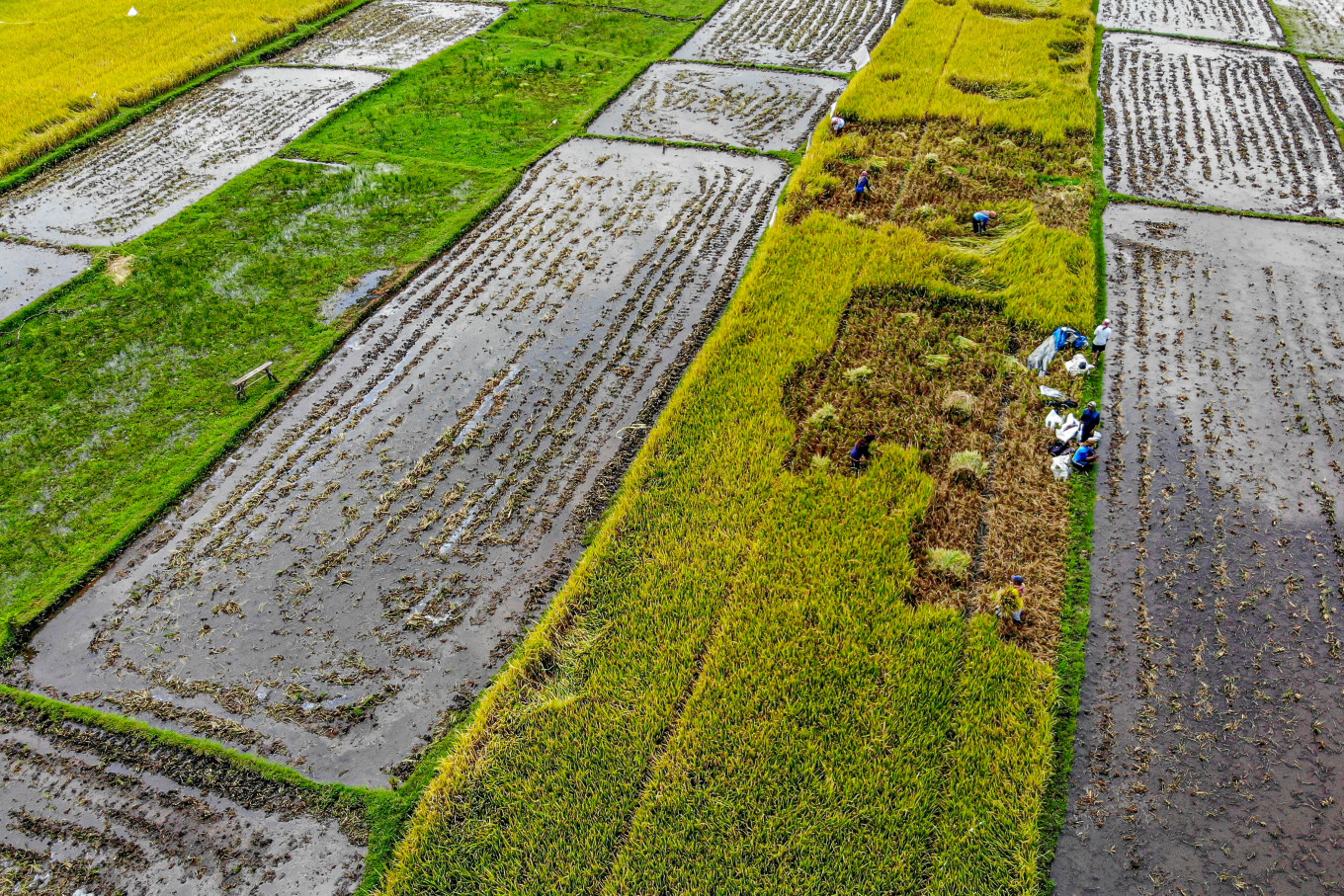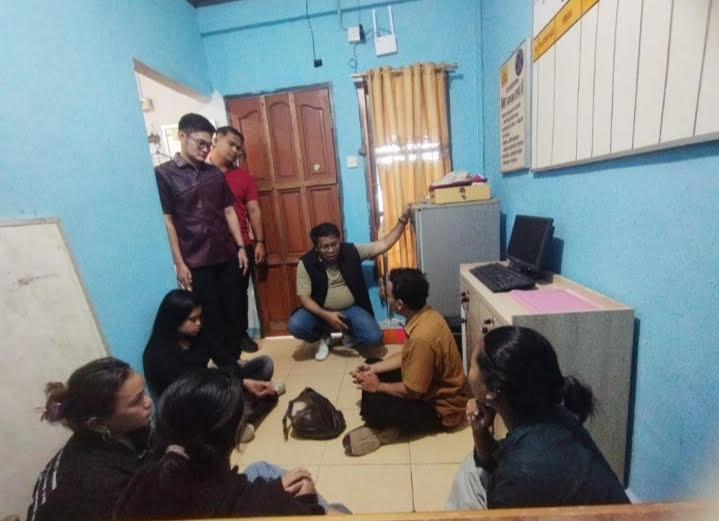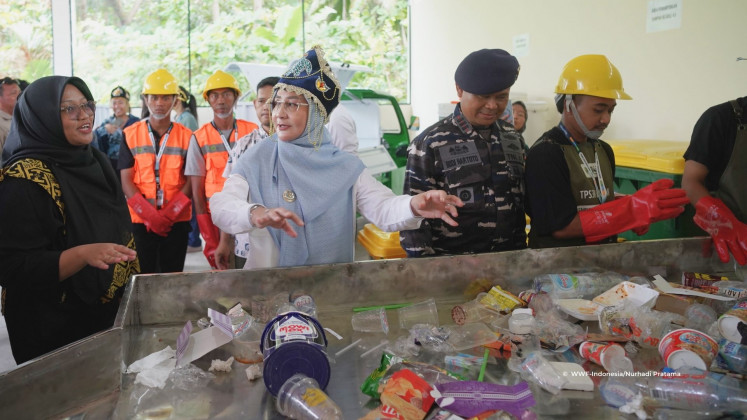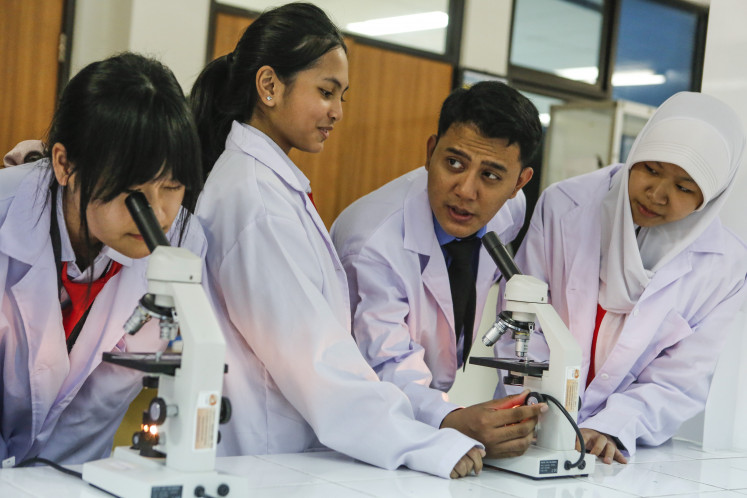Popular Reads
Top Results
Can't find what you're looking for?
View all search resultsPopular Reads
Top Results
Can't find what you're looking for?
View all search resultsIndonesia ranks 77th in global hunger levels
Indonesia ranked at 77th on the Global Hunger Index, with an index value of 16.9 percent, which means moderate hunger, while 7.2 percent of the population is still not food secure .
Change text size
Gift Premium Articles
to Anyone
I
ndonesia ranks 77th out of 127 countries with a Global Hunger Index (GHI) score of 16.9 percent, and 7.2 percent of Indonesia's population faces undernourishment, the findings of the latest study by Bright Institute found.
The institute’s economist Awalil Rizky said the ranking was derived from the 2024 GHI, which assessed various hunger indicators. Indonesia's GHI score stands at 16.9, indicating a moderate hunger level.
Awalil expressed concern over this ranking, highlighting that it reflects poorly on the country’s food security, especially given Indonesia's extensive agricultural resources.
“This is not good. It suggests that despite having vast agricultural land and a large farming community, our hunger levels are merely average. Slightly below average,” he said during a webinar on Tuesday, as quoted by tempo.co.
“Well, according to the GHI, we are experiencing undernourishment. The nutritional deficiency rate is 7.2 percent, which means that 7.2 percent of Indonesia's population is not food secure,” said Awalil.
He said the public should not overlook the numbers related to food consumption deficiencies among Indonesians.
“This serves as a warning for the Prabowo administration regarding its food self-sufficiency initiatives,” he added.
In a separate development, Agrarian and Spatial Planning Minister Nusron Wahid said that approximately 3 million hectares of land are necessary to establish new rice fields to support President Prabowo Subianto's food self-sufficiency program.
“Because old rice fields on Java Island have been turned into factories, residential areas, schools, hospitals, which are also good. But they need to be replaced,” Nusron said at his office on Tuesday, as quoted by tempo.co.
Coordinating Infrastructure and Regional Development Minister Agus Harimurti Yudhoyono echoed this sentiment, asserting that self-sufficiency is essential for global nations.
"Three million hectares of land is calculated, which is expected to meet the needs of the Indonesian people," Agus said.
"Of course, the opening of food estate land must be carefully calculated, but revitalization of existing land also needs to be done.”
Meanwhile, regarding the potential overlap of land for agricultural and housing needs, he said this issue was a critical task that the ministry must resolve. This is because the current government has set dual targets of achieving food self-sufficiency while constructing 3 million houses.











